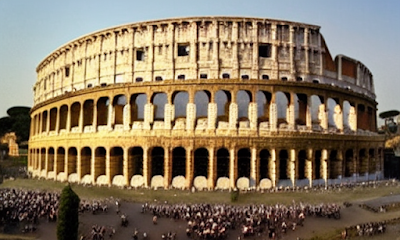Comparing ancient Rome democracy to modern democracies
Comparing ancient Rome's democracy to modern democracies - Democracy is a form of government that has been in existence since ancient times, and Rome was one of the first known civilizations to implement it. Rome's democratic system was a unique blend of various elements, including direct democracy, representative democracy, and an intricate system of checks and balances. In this article, we will compare and contrast the democracy of ancient Rome with today's democracies.
Democracy in Ancient Rome
The Roman Republic was a complex system of government that lasted for nearly five centuries. The Roman people elected their leaders through various democratic procedures, such as the comitia centuriata and the comitia tributa. The comitia centuriata was responsible for electing the consuls and passing laws, while the comitia tributa was responsible for electing the lower magistrates and passing laws that were specific to the plebeians.
The Roman Senate was also an essential part of the democratic system. The Senate was made up of wealthy and influential citizens who were appointed by the consuls. The Senate had the power to approve or veto laws passed by the comitia and to advise the consuls on matters of foreign policy and other important issues.
The Roman system of government was designed to prevent any one person or group from becoming too powerful. The consuls, for example, served for only one year and had to share power with each other. The Senate had the power to advise the consuls, but the consuls were not required to follow its advice.
Comparison with Modern Democracies:
Today's democracies share some similarities with the democratic system of ancient Rome. For example, both ancient Rome and modern democracies have a system of checks and balances to prevent any one person or group from becoming too powerful. In modern democracies, this is achieved through the separation of powers between the executive, legislative, and judicial branches of government.
However, there are also some significant differences between the democratic system of ancient Rome and modern democracies. One of the main differences is that ancient Rome's democratic system was a direct democracy, meaning that the people themselves participated directly in the democratic process. In modern democracies, on the other hand, the people elect representatives who then make decisions on their behalf.
Another significant difference is that the democratic system of ancient Rome was limited to male citizens. Women, slaves, and foreigners were excluded from the democratic process. In modern democracies, all citizens, regardless of gender or social status, are given the right to participate in the democratic process.
The role of money and wealth in politics is another significant difference between ancient Rome's democracy and modern democracies. In ancient Rome, the wealthy and influential citizens had a significant amount of power and were appointed to positions of authority. In modern democracies, money and wealth still play a role in politics, but there are laws and regulations in place to limit the influence of money on the political process.
The democracy of ancient Rome was a unique and complex system of government that lasted for nearly five centuries. While there are some similarities between the democratic system of ancient Rome and modern democracies, there are also significant differences, such as the use of direct democracy in ancient Rome, the exclusion of women and other marginalized groups, and the role of money and wealth in politics.
Overall, the democratic system of ancient Rome serves as an important historical precedent for modern democracies, but it is also essential to recognize and address the shortcomings of ancient Rome's democracy and strive to create a more inclusive and just democratic system in the present day.


Comments
Post a Comment